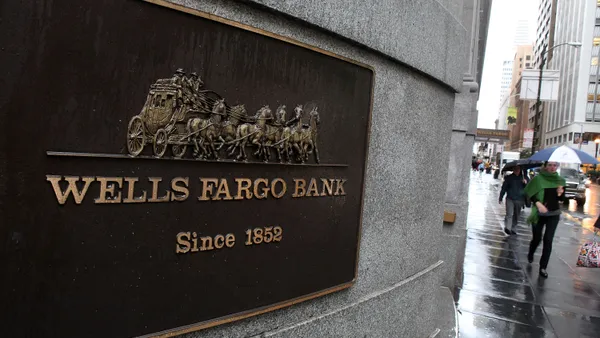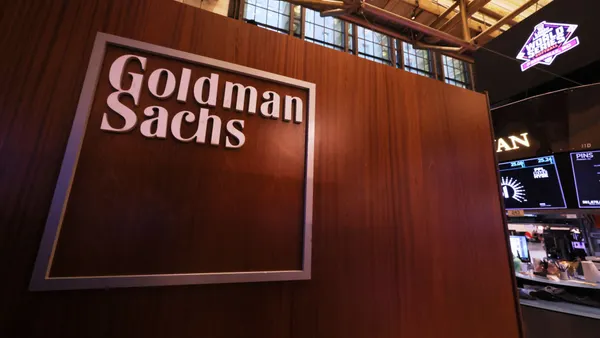Dive Brief:
- JPMorgan Chase CEO Jamie Dimon expects newly announced tariffs to push up inflation, according to his annual letter to shareholders Monday.
- In the letter – arriving less than a week after President Donald Trump announced sweeping tariffs which have sent global markets into a tailspin – the CEO of the biggest U.S. bank said his “most serious concern is how this will affect America’s long-term economic alliances.”
- “Whether or not the menu of tariffs causes a recession remains in question, but it will slow down growth,” Dimon wrote.
Dive Insight:
Dimon, 69, has frequently fretted over the geopolitical environment, and the topic received considerable space in his 57-page letter posted Monday. In offering his “prescriptions” for the country, the CEO said the U.S. faces “the most perilous and complicated geopolitical and economic environment since World War II.”
The stakes are high, Dimon warned. “The actions taken in the next decade may prove, depending on how our country and our allies perform, the most consequential of our lives and may very well determine the fate of the free and democratic world over the next century,” he wrote.
That alarm bell is similar to one he sounded last August, calling on the next U.S. president to unite the country and fortify America’s role as a global leader amid a fraught period for international relations.
In his comprehensive letter Monday, Dimon addressed topics from geopolitical and financial risks to domestic policy priorities to management takeaways and top issues facing the bank.
“Two things are absolutely foundational to the long-term success of JPMorganChase: one is whether we run a great company and two, which is maybe more important, is whether the long-term health of America, domestically, and the future of the free and democratic world are strong,” Dimon wrote.
The CEO offered his thoughts on potential tariff outcomes against the backdrop of lingering inflation and an economy already showing signs of weakening. Recent tariffs, he noted, “are causing many to consider a greater probability of a recession.” JPMorgan analysts on Friday raised their predicted likelihood of a recession to 60%. Goldman Sachs, by comparison, boosted the odds to 45%.
Dimon referred to relatively high prices, the recent drop in market values and the potential for sustained higher interest rates as “significant and somewhat unprecedented forces [that] cause us to remain very cautious.”
In the short term, inflationary outcomes are likely, “not only on imported goods but on domestic prices, as input costs rise and demand increases on domestic products,” Dimon wrote. “How this plays out on different products will partially depend on their substitutability and price elasticity.”
A host of uncertainties surround the new tariff policy, Dimon noted, including potential retaliatory actions by other countries, the effect on corporate profits and possibly the U.S. dollar, and the impact on investments and the flow of capital.
“The quicker this issue is resolved, the better because some of the negative effects increase cumulatively over time and would be hard to reverse,” the CEO wrote. “In the short run, I see this as one large additional straw on the camel’s back.”
The letter’s foreboding tone on tariff policy suggests a changed view from what Dimon expressed in January, when he told CNBC, “national security trumps a little bit more inflation.” At that time, tariff levels under consideration were not as high as what Trump announced last week.
In the long run, the effect on America’s economic alliances concerns Dimon even more. He warned that economic fragmentation from allies “may be disastrous” and weaken America.
“Keeping our alliances together, both militarily and economically, is essential,” he wrote. “Economics is the longtime glue, and America First is fine, as long as it doesn’t end up being America alone.”
The New York City-based bank – which last year generated $180.6 billion in revenue and $58.5 billion in net income for all of 2024, with a 20% return on tangible common equity – reports first-quarter earnings Friday.













